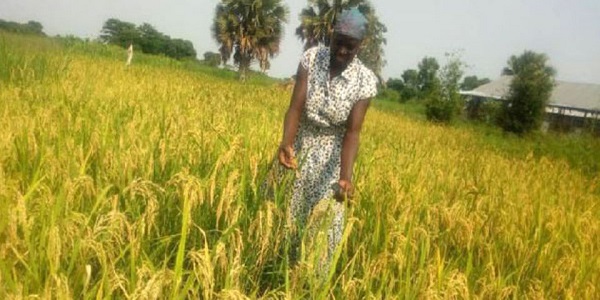SOROTI-In a bid to restore the wetlands, the authorities in Soroti district have ordered encroachers who have been growing food crops in the same wetlands to vacate by the end of this year or face the wrath of the law.
The encroachers are currently planting rice, tomatoes, and cabbages among other crops in the wetlands.
The cases of wetland encroachment are high in the areas of Arapai, Lale, Ochokchan, and some areas of Kamuda Sub-county.
Now, Soroti district natural resources committee and district security committee have given the encroachers three months’ ultimatum to harvest their crops and vacate peacefully or face forceful eviction.
The Soroti Resident District Commissioner [RDC] Ssalim Komakech said they resolved that the encroachers vacate after three months because many have already planted crops they need to harvest.
He explained that they have resolved that leaders at all levels in the district sensitise residents in the three months about the dangers of wetland degradation.
“I want to appeal to the public, we know that the president has made a strong appeal that people who have encroached on wetland be pushed out, we are just implementing that in Teso also and Soroti in particular,” Komakech said.
He warned those planning to establish gardens in the wetland areas to stop, as those found in violation of the directive shall be dealt with in accordance with the laws.
George Edutu, the Soroti district environment told this reporter that wetlands in the district have for a long time averagely declined due to encroachment.
This, he said, has greatly contributed to the worrying meteorological conditions such as erratic rains, drought, and floods, which affect agricultural production in the district and Teso region as a whole.
Edutu revealed that 75 percent of the swamps and grazing areas in the district have been encroached by the members of the public for settlement and agricultural purposes particularly rice and vegetable growing with the claim that it is their land.
“Most of the people who use swamps for crop growing say they inherited them from their great grandparents who were also using the swamps for a very long time,” explained Edutu.
He said wetlands could only be used for lucrative fish farming at the periphery but not for settlement and agriculture which has become a common phenomenon amongst communities living near the wetlands.
Edutu explained that the three months grace period that has been issued is meant to give space to those who have planted crops to harvest them and vacate peacefully.
We want all these people to vacate these wetlands and give us space to rejuvenate them. We do not expect them to remain there because force will be used against them by arresting and prosecuting all the culprits before courts of law,’’ Edotu warned.
According to him, the district has been warning the wetland encroachers for a long time and believes that the 30 days are enough for the affected individuals to remove their crops and vacate the wetlands.
Section 36 of the National Environment Act provides for the protection of wetlands, prohibits reclamation, erection of illegal structures, and empowers authorities to demolish any structure that is fixed in, on, under, or above any wetland.
The Act also empowers districts to manage wetlands within their jurisdictions and ensure that their boundaries are clearly demarcated so that even as water levels and wetland vegetation recedes, the communities are clear on where the boundaries lie.
However, some of the farmers blamed the high rate of wetland encroachment in the area on unemployment, poverty, poor service delivery by government, and lack of government livelihood projects among others.
“Those are the reasons why people have gone ahead to grow rice for quicker benefits, said Moses Okiror a resident of Olelebun village in Asuret Sub-county.”
Okiror confirmed that he has an acre of rice in the middle of the swamp.
He added that, since they faced erratic weather patterns, most youth started rice farming in swampy areas so that they can support their families.
Sarah Akello, a farmer in Kamuda Sub-county said the wetland she cultivates rice [Super rice] is their family inheritance.
According to her, they have over 23 hectares of swampland that belongs to the family.
“My father has been growing rice in the wetland before I was born, and I and other four siblings continue to cultivate in this same wetland,” said Akello.
https://thecooperator.news/butaleja-rice-farmers-oppose-govt-ban-in-swamps/
Buy your copy of thecooperator magazine from one of our countrywide vending points or an e-copy on emag.thecooperator.news
